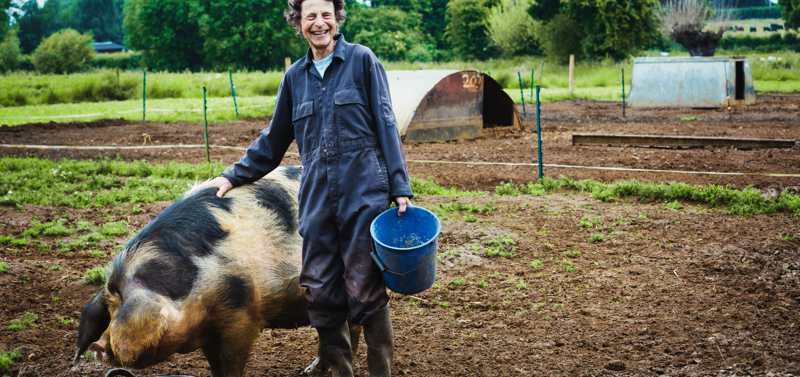
06 Oct Proposition 12: Pork and Interstate Commerce

Margaret A.M. Heine
is the principal counsel at Heine Law Group in Fullerton, California. She is licensed in California and Washington and has authority to practice before the Supreme Court of the United States and the United States Court of International Trade.
Her practice includes estate planning, wills, trusts, and probate as well as business, real estate, and civil litigation. Email: nbylegas@gmail.com or visit company website www.margaretamheine.com.
Proposition 12: Pork and Interstate Commerce
The first Monday in October brings the newest term of the Supreme Court of the United States into session. As of this writing, there are 27 new cases on the docket to be decided. Five of those cases are from the 9th Circuit which includes California and all of the West Coast.
National Pork Producers Council v. Ross (docket No 21-468) is set to be heard during this term of the Supreme Court. The National Pork Producers Council is suing the state of California through its Department of Food & Agriculture Secretary, Karen Ross, for interference with interstate commerce which is prohibited in the Constitution of the United States.
The Commerce Clause is part of Article 1, Section 8, Clause 3 of the U.S. Constitution, which gives the Congress the authority “to regulate commerce with foreign nations, and among the several states, and with the Indian tribes.” The clause contains a portion of law which is referred to as the “Dormant” Commerce Clause. In short, this provision would prohibit states from passing laws that either discriminates against interstate commerce or is an undue burden on instate commerce.
In theory, a state could not pass laws which would favor citizens or businesses in that state over any other person doing business in the state. This creates a level playing field across the U.S. for business between the states or between citizens of different states. This portion of the Constitution has been involved in legal wrangling since at least the early 1800’s. The threshold case was decided in 1905 in the Case of Swift and Company v. U.S. 196 U.S. 375 (1905). The court stated that Congress had the authority to regulate local commerce that involved the interstate movement of goods and services. In 1937 with the decision in NLRB v. Jones and Laughlin Stell 301 U.S. 1 (1937), the concept was expanded to include state activity which has a substantial economic effect or a cumulative effect on interstate commerce.
In 2018, Proposition 12 was passed to establish minimum confinement requirements for chickens, pigs, and veal. Non-compliance with the raising of these animals would effectively ban the sale of eggs, chicken, pork and veal products from the California marketplace. These regulations went into effect in 2020. Proposition 12 mandates changing an entire industry and their operations nationwide at significant and major impact to producers of these products as well as the cost of raising these animals. The Association of California Egg Farms and the National Pork Producers Council opposed Proposition 12 on the basis that the changes were a burden on interstate commerce and would increase food prices and create shortages.
In 2019, the National Pork Producers Council and the American Farm Bureau Federation brought this action on the basis that this was California’s attempt to regulate out-of-state production and effectively cutting off their products from the California market by making producers to comply with California laws instead of the resident laws of the states where they were located. The United States ranks 3rd in the world for pork production. The United States imports pork products as well as exports pork products. There are pork operations in all states, but ten states have the majority of commercial pork producing farms, primarily in the Midwest and northern states. California does not even rank in the top 20 states for pork production according to Statistica. So, the National pork Producers argue that since California in essence imports pork from other states, the law is trying to regulate the national pork industry as a whole.
Interestingly, the law only applies to the states of the United States and the District of Columbia. So, products imported from other countries are exempt—think Parma ham from Spain, Prosciutto from Italy, pork products from China. Additionally, although it appears that Canadian and Mexican pork producers would be exempt, at the World Pork Expo recently held on June 21, 2022, , Canada and Mexico are very concerned about the shipment of piglets and products between those countries and California. It now becomes an international issue and deals with the sovereign right of those countries to regulate their own industries. Canada has filed a brief in support of the National Pork Producers Council.
The case was originally heard on April 27, 2020, and it was ruled that the law does not affect interstate commerce because it is required of any company, wherever located to comply with the law, so, it is not solely based on interstate commerce. The U.S. Ninth Circuit Court of Appeals agreed with the lower court and upheld that decision. Bringing this case to the Supreme Court for a determination of whether or not the Commerce Clause is impacted unlawfully and in violation of the Constitution by the requirements of Proposition 12, may affect a national industry and make food costs even more expensive than they are now.
Another interesting case is Bittner v. United States involving the Bank Secrecy Act of 1970. In this case, a dual citizen was assess $2.72 million dollars in civil penalties for failure to file an annual Foreign Bank and Financial Accounts statement each year he lived outside of the country in his home country. Mr. Bittner was living in Romania from 2007 to 2011, and did not file the annual report, thinking that since he was a Romanian citizen as well as a U.S. citizen, and while he was living abroad, he was not required to make the annual filing. The United States District Court for the Eastern District of Texas reduced the fine to $50,000, $10,000 for each year he didn’t file the forms. However, the Fifth Circuit Court of Appeals reinstated the $2.72 million dollars penalty. The Supreme Court is to decide the application of the violations and penalties under the Bank Secrecy Act to determine if it is an annual fine/penalty for a violation or if the fine/penalty should apply to each foreign account that was not reported. For the many Californians’ with foreign assets, this is a case to watch.
Two cases will be decided challenging discrimation in college admissions and whether race should be a component in determining admission to the University. Students for Fair Admission Inc. v. Harvard and Students for Fair Admissions v. University of North Carolina will both be determined this term. This could affect the national application of Title VII of the Civil Rights Act of 1964 in both education and employment. It is a case to watch.
Most decision are published by the Court near the end of their term in June.




Sorry, the comment form is closed at this time.